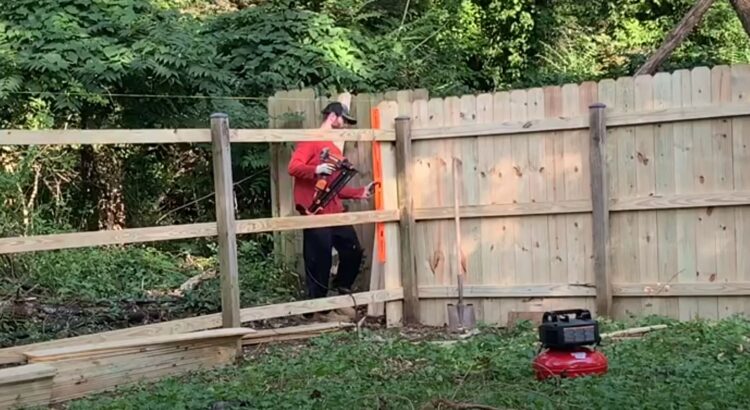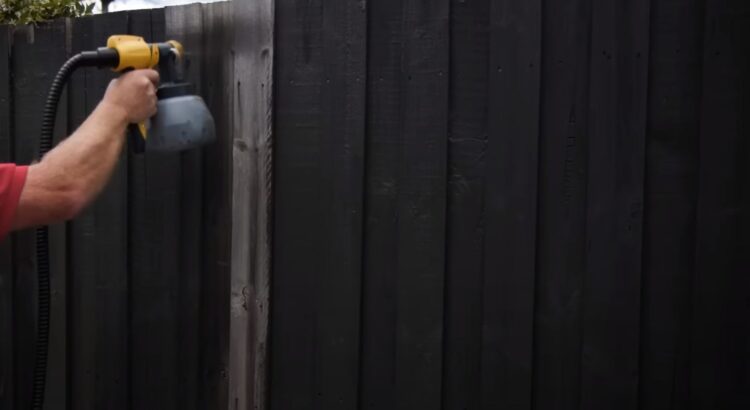The DIY vs. Professional Fence Installation Debate
The Allure of DIY Fencing
Going the DIY fencing route can be quite appealing to many Auckland homeowners. Firstly, it’s seen as a cost-saving measure. Instead of paying for labour, you handle it yourself. Plus, there’s a sense of accomplishment in completing a project with your own hands.
Challenges of Self-Installation
While the prospect of saving money is attractive, installing a fence on your own isn’t without its challenges:
Skill Level: DIY Fencing requires a particular skill set. If not done right, it can lean, lack durability, or simply not serve its intended purpose.
Tools & Equipment: Certain tools are essential for fence installation. Some might be in your garage, but others might necessitate a trip to the tool hire shop.
Time: As with all DIY projects, time is a significant factor. Do you have the hours or days necessary to devote to this project?
Materials: Knowing the type and quantity of materials needed is crucial. Mistakes can be costly both in terms of time and money.
Professional Insight – Benefits of Hiring Experts
Hiring professionals to install your fence offers several advantages:
Experience: They’ve done this before. Many times. They can foresee and avoid potential pitfalls.
Efficiency: With a team of workers and the right tools, they can complete the project in a fraction of the time.
Quality: With experience comes quality. The finished fence is likely to be sturdier and more aligned.
Regulations & Bylaws: Professionals are updated about Auckland council bylaw requirements. In suburbs like Greenhithe and Torbay, there are specific codes to be followed which might affect your fencing decisions.
Greenhithe, Torbay, and Silverdale: Unique Fencing Needs
Auckland’s diverse landscape means that fencing requirements can vary significantly from one suburb to another.
Greenhithe: Being a coastal area, considerations around saltwater corrosion and wind resistance might be essential.
Torbay: Known for its hills, installing a fence on sloping land can be challenging and might require retaining walls.
Silverdale: The residential expansion here means newer properties might have unique fencing requirements, particularly if they’re part of a housing development.
Council Bylaws and Regulations
In Auckland, fencing decisions aren’t made in isolation. There are council bylaws that dictate specific requirements, especially if the fence borders public land or affects neighbours. Professionals are well-versed in these regulations, ensuring compliance and avoiding potential disputes or redoing work.
Economic Considerations: DIY vs. Professional
While DIY might seem cheaper on the surface, there are hidden costs:
Tool hire or purchase
Material wastage due to errors
Time taken off work or other activities Professionals, with their efficiency and expertise, can often bring better value, especially when potential pitfalls and redoing work are considered.
Making the Decision: Factors to Consider
When deciding between DIY and professional fence installation, consider the following:
Budget: Can you afford professional installation, and is the potential saving from DIY worth the time and effort?
Skill Level: Are you confident in your ability to complete the project to a satisfactory level?
Time: How much time can you allocate to this project?
Bylaws & Regulations: Are you aware of all the regulations, especially those relevant to your specific suburb?
Summary Table
| Factor | DIY | Professional |
| Cost | Potentially cheaper initial outlay | Higher initial cost, but potentially better value |
| Time Requirement | Weeks (depending on size and complexity) | Days to a week |
| Quality & Durability | Depends on skill level | Typically high |
| Bylaw Compliance | Responsibility of homeowner | Managed by professionals |
| Area-specific Needs | Needs personal research | Professionals often aware of suburb-specific needs |
In conclusion, while the sense of accomplishment from a DIY fence project is undeniable, the complexities surrounding fence installations, especially in Auckland’s diverse suburbs, make hiring professionals a worthy consideration. Whether you reside in Greenhithe, Torbay, or Silverdale, your fence isn’t just a boundary – it’s a statement about your home. Ensure it speaks the right message.
DIY vs Professional Fence Installation: Your Questions Answered
What are the primary advantages of DIY fence installation?
Doing it yourself allows for potential cost savings on labour, a sense of accomplishment, and the ability to work on the project at your own pace.
How long might a DIY fence installation take?
Depending on the size and complexity of the fence, as well as the individual’s skill level, it could take anywhere from a weekend to several weeks.
Are there specific tools required for fence installation?
Yes, installing a fence requires tools like post hole diggers, levels, string lines, hammers, and possibly power tools depending on the type of fence.
What are the primary advantages of hiring professionals for fence installation?
Professional installers bring experience, efficiency, and quality to the project. They also ensure compliance with local regulations and bylaws.
How do Auckland’s diverse suburbs affect fencing decisions?
Different suburbs have unique environmental and regulatory considerations. For instance, coastal areas may require corrosion-resistant materials, while hilly areas might necessitate specific installation techniques.
Are there any specific Auckland council bylaws I should be aware of?
Yes, Auckland council has bylaws regarding fence height, style, and location, especially if the fence borders public land or affects neighbours. The specifics can vary between suburbs.
Can I install any type of fence in my chosen suburb?
Certain suburbs may have restrictions or guidelines, especially if they’re heritage-listed or have specific character considerations. It’s best to check with local councils or professionals.
How do I ensure the durability of my DIY fence?
Using quality materials, ensuring proper installation techniques, and regular maintenance are crucial for a long-lasting fence.
What are the potential pitfalls of DIY fence installation?
Common challenges include inaccurate measurements, uneven or leaning fences, not accounting for land gradient, and failing to comply with local bylaws.
Are professional fence installations guaranteed?
Most professional fencing companies offer warranties on their workmanship, giving homeowners peace of mind about the durability and longevity of their fence.
How do professionals handle disputes with neighbours over fencing?
Professionals often have experience navigating these issues and can provide guidance on shared costs, style choices, and ensuring compliance with regulations.
Do I need to inform my neighbours if I decide to install or upgrade a fence?
While it may not be legally required, it’s a good practice to discuss plans with neighbours, especially if changes may affect their property or view.
Is it more cost-effective to repair my existing fence or install a new one?
This depends on the current state of your fence. Minor damages might be cheaper to repair, but extensive wear or structural issues could make a new installation more cost-effective in the long run.

